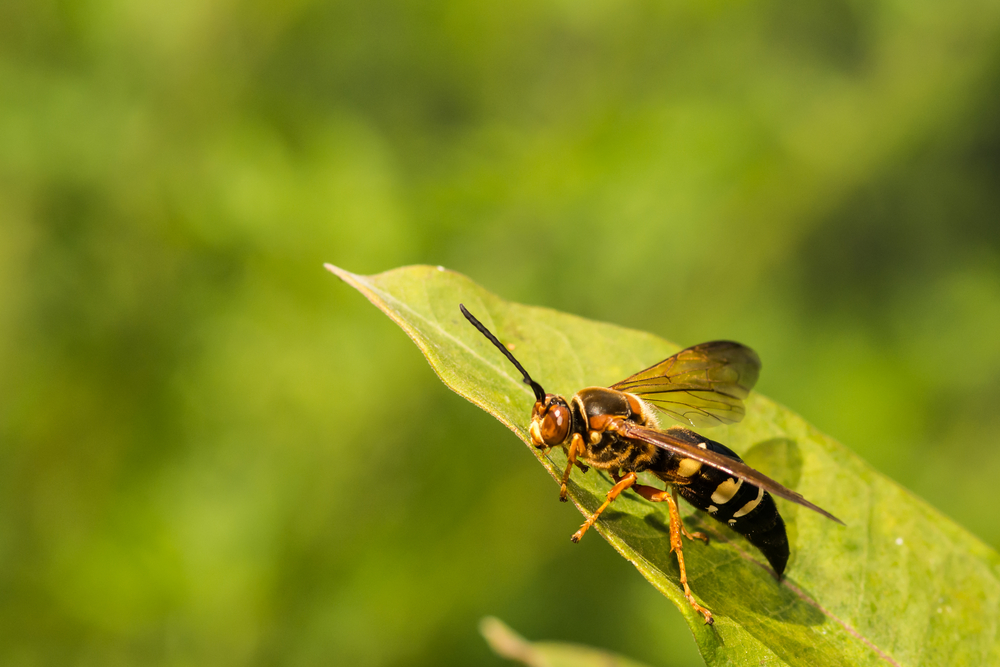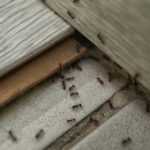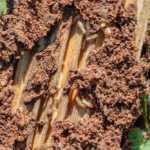Are Cicadas Dangerous? What You Need to Know Today
Discover if cicadas are dangerous, what risks they pose, and how to handle them safely. Learn the facts to stay informed this cicada season.
Are Cicadas Dangerous? What You Need to Know
Are cicadas dangerous? The simple answer is no; cicadas do not pose any threat to humans, pets, or plants. Despite their loud noise and large numbers during emergence, cicadas are harmless insects. In this article, we will explore whether cicadas can bite, if they are poisonous, how they affect the environment, and how to manage their presence in your yard.
- Cicadas are harmless; they do not bite, sting, or transmit diseases to humans or pets.
- While they may cause minor damage to young trees, established trees are largely unaffected by cicadas.
- Cicadas play a vital role in the ecosystem, serving as a food source for wildlife and contributing to soil health.
Can Cicadas Bite or Sting?
Cicadas are often mistaken for dangerous insects due to their size and loud presence. These bugs, measuring between 1 to 1.5 inches long, have distinctive black bodies, large red-brown eyes, and membranous wings with orange veins. But despite their somewhat intimidating appearance, cicada nymphs and adult cicadas are entirely harmless to humans.
A frequent worry is whether cicadas can bite or sting. The simple answer is no; cicadas lack the physical characteristics needed to do so. Unlike other insects that bite or sting as a defense mechanism, cicadas do not have stingers or strong mandibles designed for biting. This means they pose no threat to humans or pets in terms of physical harm.
If you’re surrounded by annual cicadas and periodical cicadas, know they mean no harm. They are simply going about their natural life cycle, focusing on mating and laying their eggs.
Are Cicadas Poisonous to Humans or Pets?
People often ask if cicadas are poisonous. The good news is that cicadas do not possess any venom or poison, making them safe for human interaction. Thus, cicadas are safe for you, your family, and your pets.
Pets, particularly dogs, might be curious about these noisy insects and may even try to eat cicadas. While cicadas are safe for pets to eat, it should be done in moderation. Consuming large quantities might lead to an upset stomach, but this is not a significant concern. Many animals, including birds and other predators, feed on cicadas, benefiting from their abundant presence during emergence.
The emergence of cicadas provides a substantial food source for various wildlife, supporting different animal populations. This highlights both the safety of cicadas and their role in the food web. Overall, cicadas are not poisonous and can be safely included in the diets of pets and other animals when consumed in moderation.
How Loud Are Cicadas?
If you’ve ever been near a group of cicadas, you’ve undoubtedly noticed their loud, persistent calls. Male cicadas produce these sounds using drum-like structures called tymbals located on their abdomen. These mating calls can reach between 80 to 100 decibels, which is comparable to the sound of a lawnmower.
Male cicadas produce loud calls to attract females for reproduction. Male cicadas’ calls vary in pitch and rhythm, creating a symphony of sounds that can be both fascinating and overwhelming. While their calls are an essential part of their mating process, they can be quite loud and persistent, especially when many cicadas emerge at once.
For those living in areas with large cicada broods, such as Brood XIX and Brood XIII in the eastern United States, the noise can be a temporary nuisance. However, it’s important to remember that this period of loudness only lasts for a few weeks. Once the mating season is over, the cicadas will die off, and the noise will subside. Knowing the reason for their calls can help you appreciate this natural phenomenon rather than viewing it as a disturbance.
Will Cicadas Harm My Plants or Trees?
People often worry about potential plant and tree damage during cicada emergence. Female cicadas lay their eggs in small tree branches, which can cause these branches to die and break off. Young, delicate trees are especially vulnerable to lasting harm from baby cicadas’ egg-laying when cicada nymphs hatch.
However, it’s important to note that cicadas do not harm established trees. While young trees might suffer from minor and temporary damage caused by hatching larvae, mature trees are generally unaffected. Adult cicadas primarily consume small amounts of tree sap and do not damage leaves or fruits.
Gardeners and homeowners might need to take precautions for young trees, but generally, cicadas won’t cause significant garden damage. Covering young trees with mesh netting can prevent cicada egg-laying, keeping them healthy.
What If a Cicada Lands on Me?
Cicadas might land on you during their peak emergence. Cicadas are not interested in human beings; they land on people because they are looking for trees or shrubs to attract a mate and lay eggs. If a cicada lands on you, it’s probably not on purpose.
Though startling, there’s no need to panic if a cicada lands on you. These insects are harmless and are not out to cause any harm. Cicadas do not bite or sting, and they are not interested in humans. In rare cases, a cicada might mistakenly bite a person if they linger on their skin long enough, but this is extremely uncommon.
If a cicada lands on you, simply let it be or gently brush it off. Knowing cicadas aren’t dangerous can ease discomfort, letting you appreciate their brief presence.
Do Cicadas Spread Diseases?
A reassuring fact about cicadas is that they don’t transmit diseases to humans or pets. Unlike mosquito bites, which can cause irritation and transmit illnesses, cicada bites do not cause itching or redness. This makes cicadas relatively safe compared to other insects.
You can observe these creatures without worrying about health risks. Their presence, while sometimes overwhelming, is harmless in terms of disease transmission.
Can You Eat Cicadas?
Believe it or not, cicadas are edible. Many cultures around the world consider insects a delicacy, and cicadas are no exception. However, if you plan to eat cicadas, there are a few precautions to take. Avoid eating cicadas from treated lawns, as they might contain pesticide traces. Additionally, people with seafood allergies or shellfish allergies should avoid eating cicadas due to potential allergic reactions.
To prepare cicadas for eating, rinse, dry, and freeze them to kill and preserve them for later use. Cicadas can be cooked in various ways, adding a unique and crunchy protein source to your diet.
Though it may seem unusual, it highlights the versatility of cicadas in various cuisines.
Environmental Benefits of Cicadas
Cicadas play a significant role in the ecosystem, providing various environmental benefits. They serve as a key food source for various wildlife, including birds and other predators. This makes cicadas an essential part of the food chain, supporting different animal populations during their emergence.
Additionally, cicadas contribute to soil health. Their natural behavior helps aerate the soil as they burrow underground, enhancing water filtration. As dead cicadas decompose, they contribute vital nutrients back into the soil, enriching it and promoting plant growth. This process supports the growth of new trees and plants, benefiting the overall ecosystem.
Cicadas don’t harm most plants and can benefit the soil by aerating it. Their temporary presence has lasting positive environmental effects, making them crucial to the natural world.
Managing Cicadas in Your Yard
A few practical tips can make managing cicadas in your yard straightforward. To protect young trees from cicada egg-laying, cover them with mesh netting. This simple measure can prevent damage and ensure your trees remain healthy.
Refrain from using pesticides to control cicadas. Pesticides can harm the local ecosystem and may poison animals that eat cicadas. Focus on non-chemical methods like protective measures for trees and shrubs.
Eco-friendly practices protect your garden and support the broader environment. Understanding and managing cicadas responsibly allows you to enjoy your yard while coexisting with these fascinating insects.
Cicadas are a remarkable part of our natural world. Despite their loud calls and sudden emergence, they are harmless to humans and pets. They do not bite, sting, or spread diseases, and they play a crucial role in the ecosystem by providing food for various animals and enriching the soil.
Understanding cicadas and their behaviors can help alleviate common fears and misconceptions. By managing cicadas responsibly, you can protect your garden and appreciate the unique contributions these insects make to our environment. For more information or assistance with managing pests, contact Responsible Pest and Scorpion Control.
Frequently Asked Questions
What to do if you see a cicada?
If you see a cicada, you can safely remove them by hand if there are only a few, or use a garden hose to spray them off plants. Taking these steps can help manage their presence effectively.
Can a cicada hurt a human?
Cicadas cannot hurt humans as they do not sting or bite, and they are harmless to pets and plants as well. They primarily feed on tree sap and do not pose any threat to crops or gardens.
Can cicadas bite or sting?
Cicadas cannot bite or sting, as they do not possess the necessary anatomy, making them harmless to humans.
Are cicadas poisonous to pets?
Cicadas are not poisonous to pets, but eating them in large amounts can cause digestive issues. It’s best to monitor your pet if they consume cicadas.
How loud can cicadas get?
Cicadas can be incredibly loud, with their mating calls reaching between 80 to 100 decibels, similar to the sound of a lawn mower. This intense volume emphasizes their unique role in nature and creates a distinctive sonic experience in their habitat.



